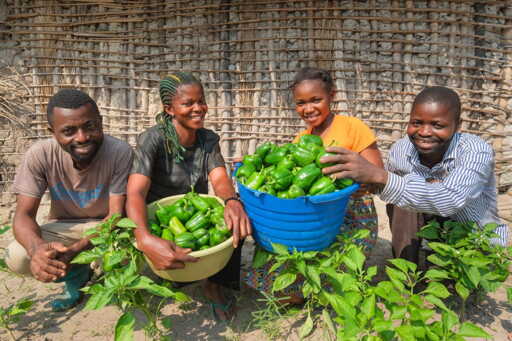At the COP30 climate summit currently underway in Belém, Brazil, adapting to climate change impacts is a major focus of discussions. This is particularly the case for delegates from Africa, where agriculture, on which the majority of the continent’s people rely for their livelihoods, is directly affected by erratic and extreme weather and rising average temperatures. The NGO GRAIN works with farming communities in Africa and elsewhere to protect their food sovereignty, especially in the face of industrial agricultural models that shift production toward commercial seeds, synthetic fertilizers and pesticides, and commodity crops. GRAIN’s program coordinator for Africa, Ange-David Baïmey, sat down with Mongabay’s Yannick Kenné to explain the group’s participation at COP30, where it’s less interested in the formal negotiations than in the space created to exchange information about climate change adaptation strategies with like-minded civil society groups and push for climate justice. The following interview has been translated from French. Ange-David Baïmey, Africa program coordinator for the NGO GRAIN. Image courtesy of Ange-David Baïmey. Mongabay: What does climate justice mean for GRAIN? What does it mean for the communities you work with in Africa? Ange-David Baïmey: For us at GRAIN, climate justice means taking into account the realities of grassroots communities. Various actors are trying to advance a climate justice agenda in a particular way, but for us, this has its limits. When we talk about climate justice, it means ensuring that the communities most affected by its impacts can find solutions to their problems. When we talk…This article was originally published on Mongabay
From Conservation news via this RSS feed


